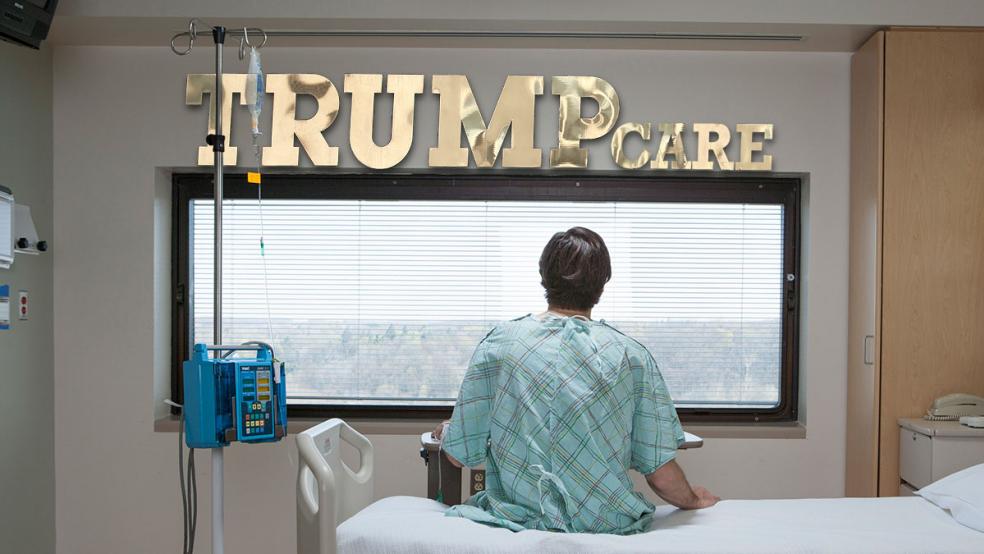While the future looks bleak for the Affordable Care Act as President-elect Donald Trump and congressional GOP leaders prepare to bring down the axe on it in January, Democrats haven’t abandoned all hope of at least salvaging important chunks of the embattled health insurance program.
The White House this week began rolling out a campaign to save Obamacare, including release on Tuesday of a 100-page report highlighting the program’s success in providing coverage to 20 million previously uninsured Americans while improving medical care and bending the nation’s health care cost curve.
“I am hopeful that, in the years ahead, Congress keeps working in a bipartisan fashion to move us forward rather than backward in support of the health of our people,” Obama said on Tuesday during a ceremony in which he signed a bipartisan medical innovation law.
Related: A ‘Full Repeal’ of Obamacare Could Spur Medicare’s Bankruptcy
House Minority Leader Nancy Pelosi (D-CA), taking heart from what she perceives as growing divisions within the GOP over timing and legislative substance, told reporters that “I don’t think they’re going to repeal the Affordable Care Act,” according to The Hill.
And now, Alice Rivlin, the Grand Dame of the Democratic Washington budget scene, has unveiled a proposed compromise with Trump and the Republicans. It would preserve some of Obamacare’s most important legislative architecture while embracing many of the market-oriented ideas advanced by Trump and his GOP allies.
“If the Great Dealmaker wants to show his skills and build an enduring legacy, he should start by brokering a deal that preserves the best aspects of Obamacare, fixes its design flaws, and turns it into a sustainable program with his name on it,” Rivlin wrote in an op-ed piece for Fox Business. “Putting this deal together will test the new president’s skills in the ‘art of the deal’ as real estate never could.”
Rivlin, a former director of the Congressional Budget Office and the Office of Management and Budget, stresses that Obamacare’s basic structure of providing consumer choice among competing private health plan provides the framework for a more market-oriented system that Trump and the Republicans strongly favor.
Related: Surprise! Some GOP Govs Really Want to Keep Expanded Medicaid
What’s more, she says, there are ways to jettison some of the most controversial elements of the ACA – including the mandate on individuals to purchase coverage or face penalties and other regulatory strictures and taxes on businesses.
Obamacare was designed to provide millions of uninsured Americans access to a range of choices in an electronic marketplace and income-related tax subsidies to help low-income people pay their premiums. The key was to attract a proper mix of young, healthy consumers and older, sicker people that would assure that insurance companies taking part in the program made a profit while offering a wide range of policies.
However, it hasn’t worked out that way. Major insurers like UnitedHealthcare, Aetna and Blue Cross-Blue Shield that have been socked with millions of dollars in losses have pulled out of some of the markets throughout the country or jacked up their premiums on average of 25 percent or more.
Trump said after his post-election meeting with President Obama that there were parts of Obamacare he would like to preserve, including a ban on insurers discriminating against applicants on the basis of pre-existing health conditions and requiring carriers to keep young people on their parents’ insurance until they turn 26. He also likes the rules against charging older people more than triple the rate charged to younger applicants.
Related: Soaring Medicaid Enrollment Could Hit State Budgets
Rivlin said that these and other popular features of Obamacare drove up premiums for younger healthier people, “who tend to resist buying insurance anyway,” and forced insurance carriers to offer plans on the exchanges with customers who were older and sicker, and therefore more expensive than anticipated.
GOP critics also complained that the law required covering benefits that not everyone needed. For instance, single men don’t want to have to pay for maternity coverage, as they now must do. And the law doesn’t allow for bare-bones protection against medical catastrophes. This has discouraged younger, healthier Americans to buy policies.
Republicans also favor more measures to encourage competition, such as by tearing down barriers to insurance companies selling their policies across state lines and throughout the country.
Rivlin wrote that if “TrumpCare” is to be truly great, as the president-elect promises, then “The challenge for the new team will be to craft a deal that relaxes the age rules to make it more attractive for younger, healthier people to buy at least bare-bones insurance and gives them strong incentives to enroll without an actual mandate.”
Rivlin, a senior economist with the Brookings Institution, is no stranger to wading into health care controversies. In 2011, she joined forces with now House Speaker Paul Ryan (R-WI) to propose highly controversial plans to overhaul Medicare and Medicaid to bring down their long-term costs.
Related: 52 Million Americans With Pre-Existing Conditions Face Uncertainty Under Obamacare Repeal
In an interview on Wednesday, she voiced optimism that a bipartisan compromise to avert the total repeal of Obamacare is possible.
“Yes, a compromise is possible because I think the Republicans don’t want a meltdown on their hands,” Rivlin said. “The president-elect said in his ’60 Minutes’ interview that he wants a smooth transition. He didn’t want to leave people in the lurch. And he does want the insurance market reforms to remain.”
“So if you have those two parameters, then you have to figure out what the replacement is that is viable,” she said. “I think it looks like a modified version of the structure that we have.”
“Keeping exchanges and private plans is, after all, a very Republican idea, and always was,” she added. “And the only reason they were so opposed to it was that it had Obama’s name on it.”





